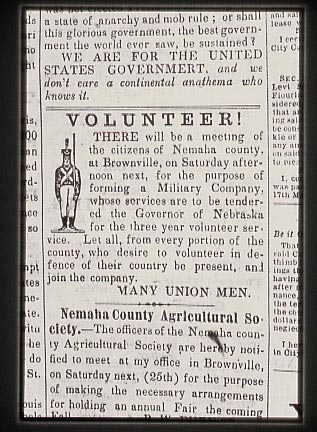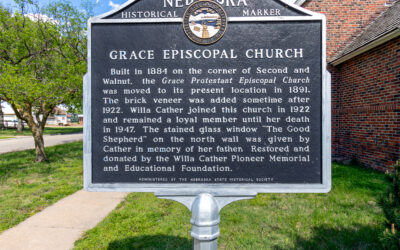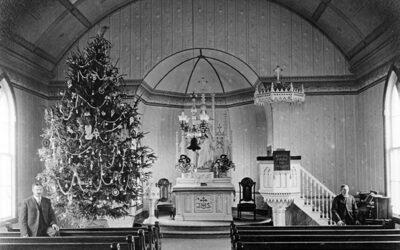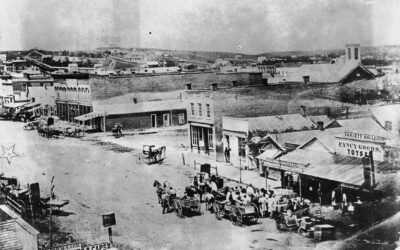This year marks the sesquicentennial (150th anniversary) of the beginning of the American Civil War on April 12, 1861, the date when Confederate forces opened fire on Fort Sumter in the harbor at Charleston, South Carolina. Nebraska was then a U.S. territory, whose creation in 1854 by the so-called Kansas-Nebraska Act had been a major factor leading up to war. The act gave Southerners the right to take their slaves into new territories located west of the Missouri River, a part of the 1803 Louisiana Purchase where slavery had previously been prohibited. Northern outrage over the prospect that slavery might spread into the West sparked the rise of the new Republican Party, which was determined to resist slavery’s extension. The 1860 election of Republican nominee Abraham Lincoln to the presidency prompted South Carolina, and soon ten other slave-holding states of the Deep South, to leave the Union and form the Confederate States of America.
Despite Nebraska Territory’s distance from the great Civil War drama playing out between 1861 and 1865 on battlefields in the East and South and in the rival capitals, Nebraskans were not mere bystanders. A large percentage of the territory’s men served in the Union army. Nebraska civilians were touched by the war as well, including politicians who met in party conventions or held public office; editors who debated wartime issues in their newspapers; and merchants and farmers who ran the stores and raised the crops. As in all wars, those at home waited, often in vain, for the safe return of loved ones from the battlefronts. Telegraph lines that had reached Nebraska in 1860 meant that local editors received war news that was only a few days old. Less than a week after the Confederates fired on Fort Sumter, Robert W. Furnas of the Brownville, Nebraska Advertiser, editorialized on the war’s outbreak in the April 18 issue. Furnas, a Republican who had supported Abraham Lincoln for president, was outraged by the attack and gave a ringing call for patriots to support the U.S. government and the Union:
“Civil War is upon us and it is now the business of the government to pursue such a course as will most speedily and effectually silence the traitors and re-establish the supremacy of law and order. The immortal sentiment of Stephen Decatur is the motto of the people-May my country ever be right; but right or wrong, my country always. . . . The damning blot must be wiped out-treason must be crushed with the strong arm of government, and the majesty of the law vindicated at the point of the bayonet if need be. The time for appeal, argument, and conciliation has gone. Let the tocsin now sound from every hill and valley; let patriots rally to the call of their country, and ‘woe be to him who shall attempt to withstand the tempest of a nation’s wrath.'”

From the Nebraska Advertiser (Brownville), May 23, 1861.



